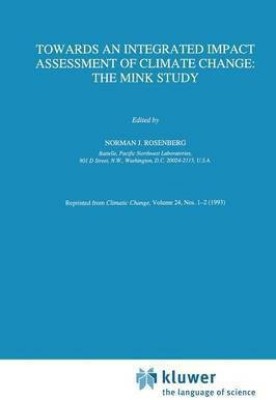Towards an Integrated Impact Assessment of Climate Change: The MINK Study(English, Paperback, unknown)
Quick Overview
Product Price Comparison
General circulation models state that the central United States (and other mid-latitude continental regions) will become warmer and drier as the result of greenhouse warming. On this premise the dustbowl period of the 1930s was selected as an analogue of climate change and its weather records imposed on the Missouri--Iowa--Kansas region to assess how current agriculture, forestry, water resources and energy and the entire regional economy would be affected. The same climate was also imposed on a MINK region forty years into the future, by which time climate change may actually be felt, to assess whether technological and societal change would alter the region's vulnerability to climate change. Another premise of the study was that people would not suffer the impacts of climate change passively, but would use availabe tools to ease the stress. The rising atmospheric concentration of carbon dioxide, expected to be the major cause of greenhouse warming, also works to improve plant growth and reduce plant water use. So the effects of this `Co2 fertilization' were also considered in the analysis. The results, some of them surprising, of this first, fully-integrated analysis of climate change impacts and responses are reported in this book.


